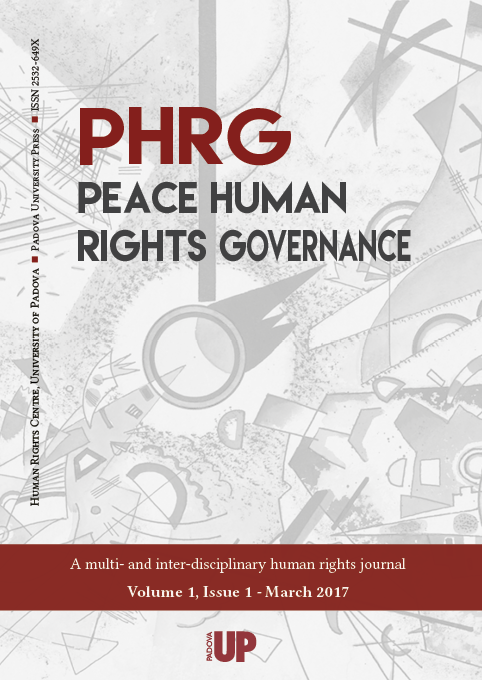Raccolte

The Implications of Principled Pragmatism for Human Rights Promotion
- Sito internet
- Peace Human Rights Governance 1(1)
- Tipologia pubblicazione
- Articolo / Saggio
- Pagine
- 67-86
- Lingua
- EN
This paper discusses the attempts of the European Union and the United States of America to find a middle ground between isolationism and interventionism, between realism and idealism, between hard power and soft power. More specifically, we study principled pragmatism as an approach to foreign policy formulation and implementation. Our first aim is to present the main tenets of principled pragmatism, as defined and operationalized by the United States and the European Union. Our second aim is to discuss if and how its application could affect the place of human rights promotion in foreign policy. This is done through the introduction of additional ideas which appear to be closely linked to principled pragmatism, mutually informing and reinforcing one other. In relation to each of these four ideas, we further identify possible challenges, risks and criticisms which decision- and policy-making informed by principled pragmatism might encounter.

